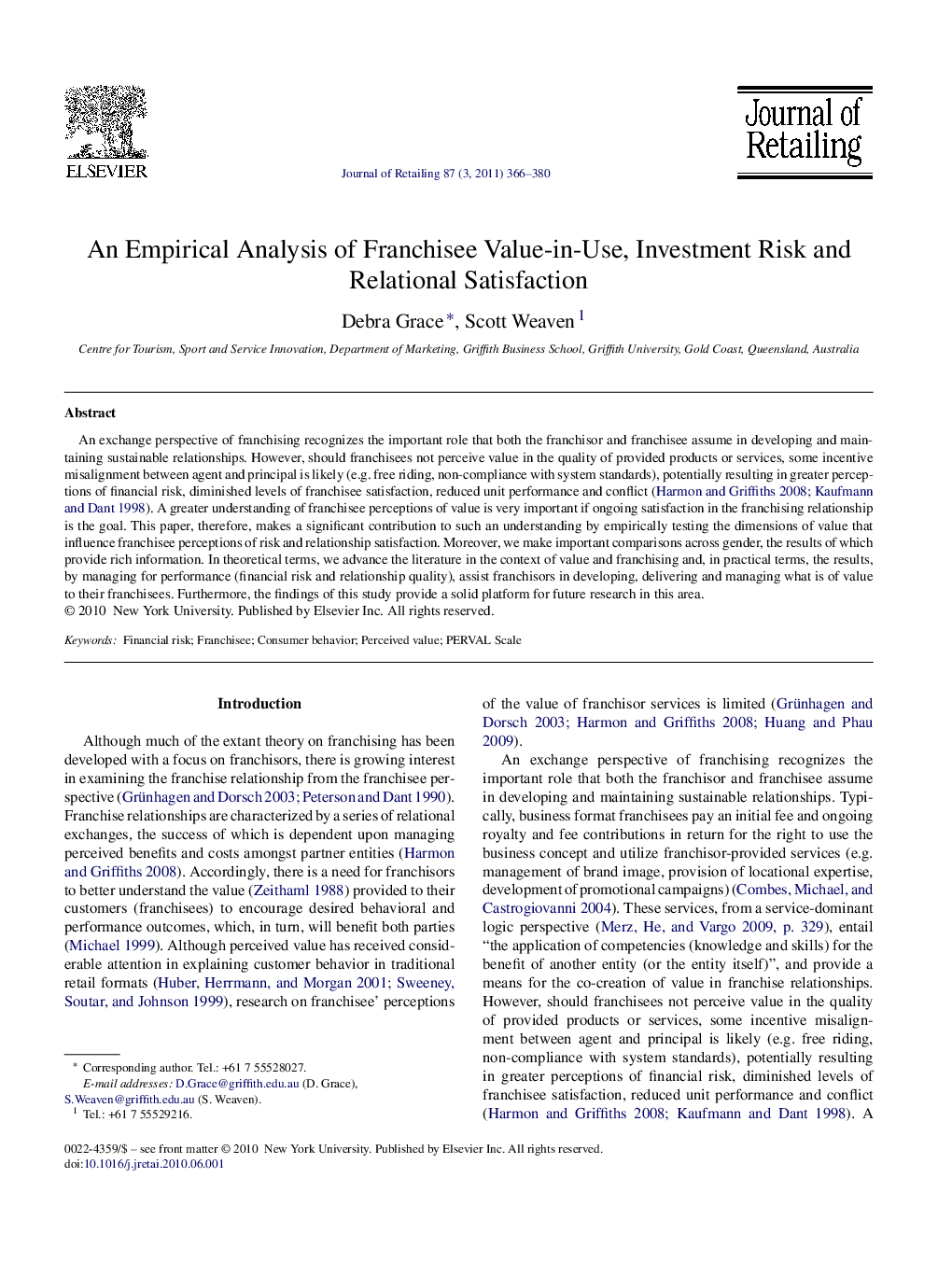| Article ID | Journal | Published Year | Pages | File Type |
|---|---|---|---|---|
| 886401 | Journal of Retailing | 2011 | 15 Pages |
An exchange perspective of franchising recognizes the important role that both the franchisor and franchisee assume in developing and maintaining sustainable relationships. However, should franchisees not perceive value in the quality of provided products or services, some incentive misalignment between agent and principal is likely (e.g. free riding, non-compliance with system standards), potentially resulting in greater perceptions of financial risk, diminished levels of franchisee satisfaction, reduced unit performance and conflict (Harmon and Griffiths, 2008 and Kaufmann and Dant, 1998). A greater understanding of franchisee perceptions of value is very important if ongoing satisfaction in the franchising relationship is the goal. This paper, therefore, makes a significant contribution to such an understanding by empirically testing the dimensions of value that influence franchisee perceptions of risk and relationship satisfaction. Moreover, we make important comparisons across gender, the results of which provide rich information. In theoretical terms, we advance the literature in the context of value and franchising and, in practical terms, the results, by managing for performance (financial risk and relationship quality), assist franchisors in developing, delivering and managing what is of value to their franchisees. Furthermore, the findings of this study provide a solid platform for future research in this area.
Graphical abstractFigure optionsDownload full-size imageDownload as PowerPoint slideResearch highlights▶ Monetary, emotional and quality value dimensions contribute to franchisee value-in-use. ▶ Value-in-use dimensions influence perceptions of investment risk and relationship satisfaction. ▶ Influence of value-in-use on risk and satisfaction differ between male and female franchisees.
